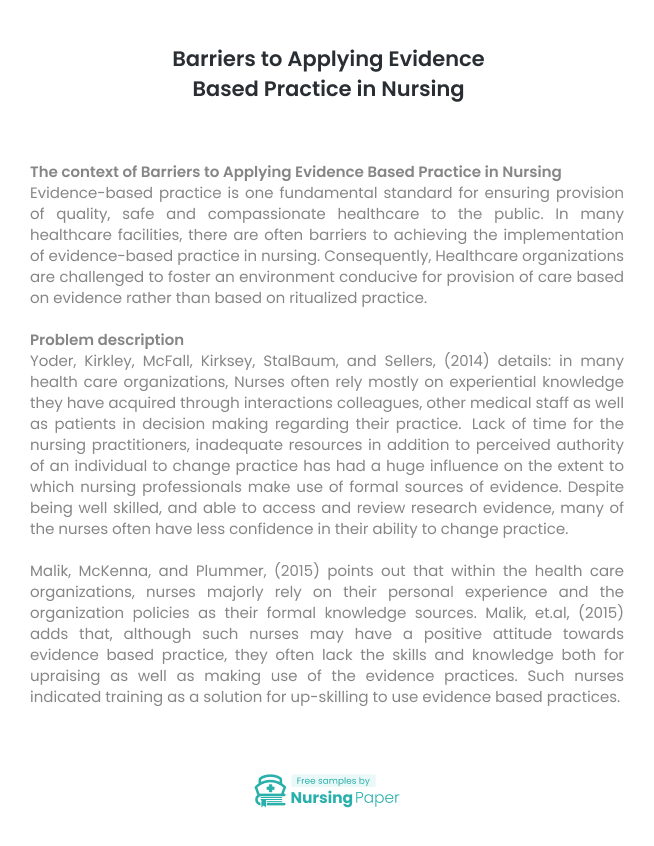1. Baker, J. D. (2017). Nursing Research, Quality Improvement, and Evidence-Based Practice: The Key to Perioperative Nursing Practice. AORN journal, 105(1), 3-5.
2. Black, A. T., Balneaves, L. G., Garossino, C., Puyat, J. H., & Qian, H. (2015). Promoting evidence-based practice through a research training program for point-of-care clinicians. The Journal of nursing administration, 45(1), 14.
3. Johansen, M. L., & O’brien, J. L. (2016, January). Decision making in nursing practice: a concept analysis. In Nursing forum (Vol. 51, No. 1, pp. 40-48).
4. Keers, R. N., Williams, S. D., Cooke, J., & Ashcroft, D. M. (2013). Causes of medication administration errors in hospitals: a systematic review of quantitative and qualitative evidence. Drug safety, 36(11), 1045-1067.
5. Larouche P., d’Entremont A., Thompson G., Mulpuri K. (2016) Fundamental Concepts in Evidence-Based Medicine. In: van de Kelft E. (eds) Surgery of the Spine and Spinal Cord. Springer, Cham
6. Malik, G., McKenna, L., & Plummer, V. (2015). Perceived knowledge, skills, attitude and contextual factors affecting evidence‐based practice among nurse educators, clinical coaches and nurse specialists. International journal of nursing practice, 21(S2), 46-57.
7. Theofanidis, D. (2015). Evidence Based Practice and Evidence based Nursing Education. J Nurs Care, 4(279), 2167-1168.
8. Yoder, L. H., Kirkley, D., McFall, D. C., Kirksey, K. M., StalBaum, A. L., & Sellers, D. (2014). CE: original research: staff nurses’ use of research to facilitate evidence-based practice. AJN The American Journal of Nursing, 114(9), 26-37.

The download will start shortly.



 Subject:
Subject:
 Number of pages: 3
Number of pages: 3